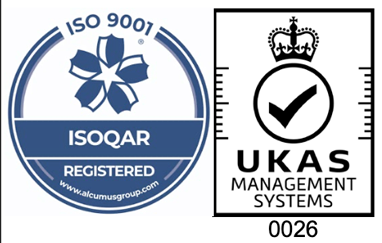A Guide to Rubber Products and Extreme Heat
23rd May, 2024
One of the greatest advancements in rubber manufacturing was the ability to create heat-resistant rubber products. In several industries, it’s vital that certain products can retain their shape and durability when encountering extreme heat.
In this article, we’ll discuss why some types of rubber are heat-resistant and which rubber products are the gold standard for extreme heat environments.
How is rubber able to withstand extreme heat?
Rubber’s ability to withstand extreme heat stems from its molecular structure and the properties of the polymers from which it is made. A modern vulcanized rubber can be thrown into a hot furnace and not melt. The rubber has been processed with other materials such as carbon to ensure that it doesn’t oxidise and therefore burn or melt.
Types of Rubber for high-temperature resistance:
Silicone – Silicone rubber is highly resistant to heat and can maintain its properties over a wide temperature range, typically from -60°C to 230°C. It is commonly used for products such as gaskets, seals, tubing, and insulation. Some silicone compounds are even flame retardant.
Viton – Viton rubber exhibits excellent heat resistance and can withstand temperatures ranging from -20°C to 204°C. It is also non-toxic and odour-free which suits the needs of food manufacturers.
EPDM – EPDM rubber offers excellent heat resistance and can withstand temperatures up to approximately 150°C for extended periods. At Aquaseal, we utilise EPDM synthetic rubber compounds for general and speciality outdoor applications such as steam hoses, tubing, high temperature-resistant seals, electrical insulation, roll covers, sheeting and more.
Neoprene – Neoprene rubber offers moderate heat resistance and can maintain its properties in temperatures around 121°C for extended periods. Neoprene rubber was originally developed as an oil-resistant alternative to natural rubber and is resistant to ozone, sunlight, oxidation and many petroleum derivatives. Neoprene rubber products are commonly used in the marine industry.
Nitrile Rubber: While nitrile rubber is not as heat-resistant as some other types, it still offers good performance at moderate temperatures up to approximately 121°C. It is often used in applications requiring resistance to oils, fuels, and chemicals, such as in automotive seals and gaskets.
Why Choose Aquaseal Rubber?
At Aquaseal Rubber, our reputation within the industry & our vision for quality, value and customer service is second to none. We offer solutions to all your requirements no matter how large or small. All our products are available in a wide range of materials suitable for any environment. Contact our team to learn more.


